The University of Texas Libraries reached out in new ways this past semester to actively engage patrons through initiatives demonstrating how the UT Libraries is evolving, changing in ways that might be unexpected, and honing services that are more relevant than ever before.
This fall the UT Libraries participated in a nationwide “Outside the Lines” initiative, in its nascent year, by showcasing services, hosting activities and highlighting treasures, and then expanded its “Crunch Time” initiative, now in its seventh year, to insert the Libraries collections, resources and experts into the flow of academic endeavor that culminates as midterms approached.
Concentrated within one week in mid-September, our incarnation of “Outside the Lines” (OTL) consisted of a Perry-Castaneda Library (PCL) Media Lab-sponsored activity enabling participants to make music with a robot or animate a cartoon, an open house for Chinese-speaking students, a slam poetry performance by Spitshine at the UT Poetry Center, an event co-sponsored by the departments of English, Middle Eastern Studies, Molecular Biology and Spanish and Portuguese, and the 5th Annual LLILAS Benson Student Photo Exhibition featuring photographs taken by students highlighting research, fieldwork and volunteer activities related to Latin America and U.S. Latino communities.
The culminating OTL activity, DJs spinning music from the Fine Art Library’s recently acquired KUT CD collection, was postponed due to rain but successfully paired with a subsequent Hearts of Texas State Employee Charitable Campaign (SECC) event on the PCL Plaza for a truly “Outside the Lines” mash up of music and philanthropic momentum.
“Crunch Time 2014” was sponsored by these seven UT Libraries in mid-October: Architecture and Planning, LLILAS Benson, Chemistry, Fine Arts, Life Science, PCL and Physics Mathematics Astronomy. Each location featured Crunch Time handouts, mini-Nestle Crunch bars, and opportunities for students to get help with assignments, schedule a research consultation session with a subject specialist, and check out collections and places to study.
These exciting efforts yielded vital means for the UT Libraries to connect with a diverse array of UT students, library users, authors and members of the broader Austin community. Planning and execution of each of these events was achieved through cross-Libraries and campus-wide collaboration, as well as the talent, knowledge, and expertise of Libraries staff, presenters and the participants themselves. These successful connections of people, resources, and spaces provided further evidence that the UT Libraries serve as nourishing places for learning, discovery and inspiration.

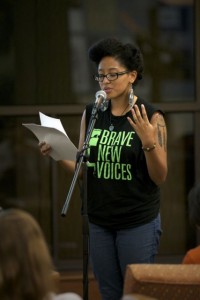
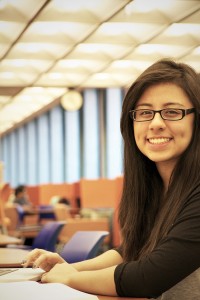

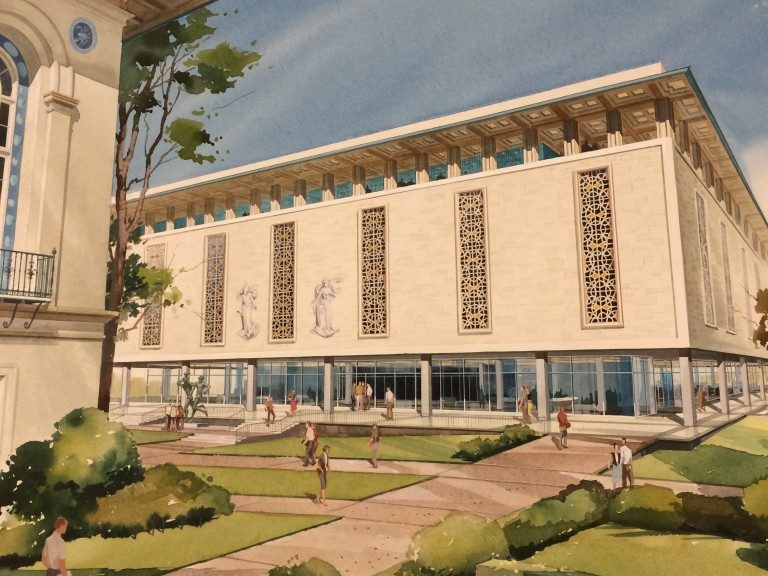
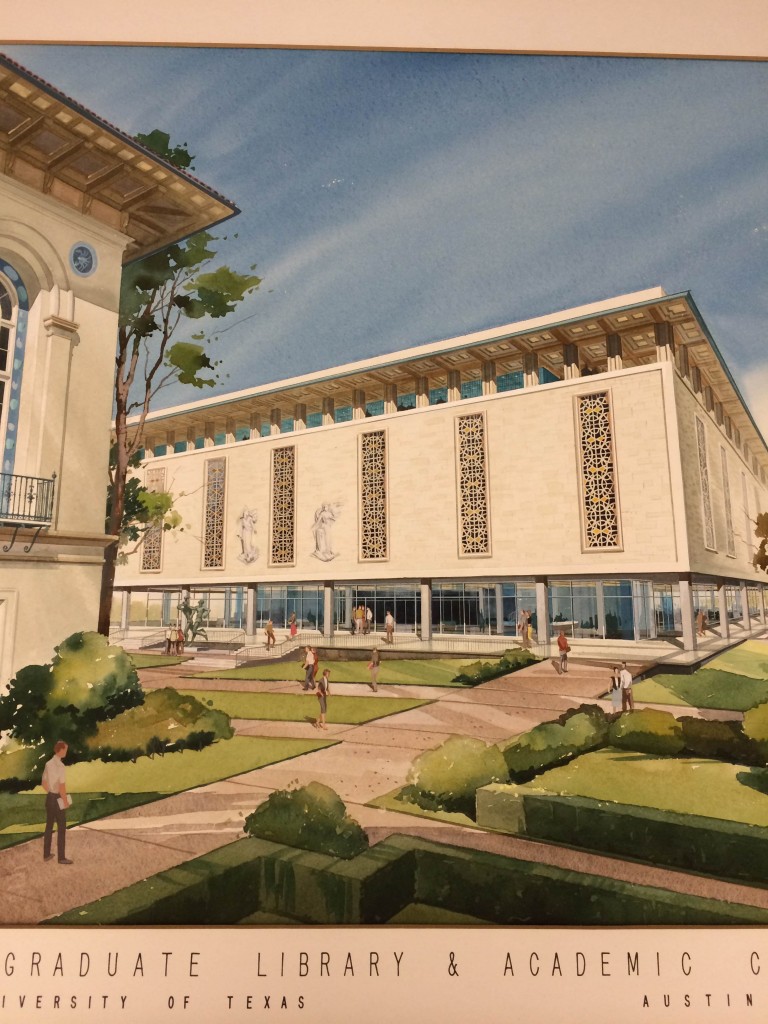
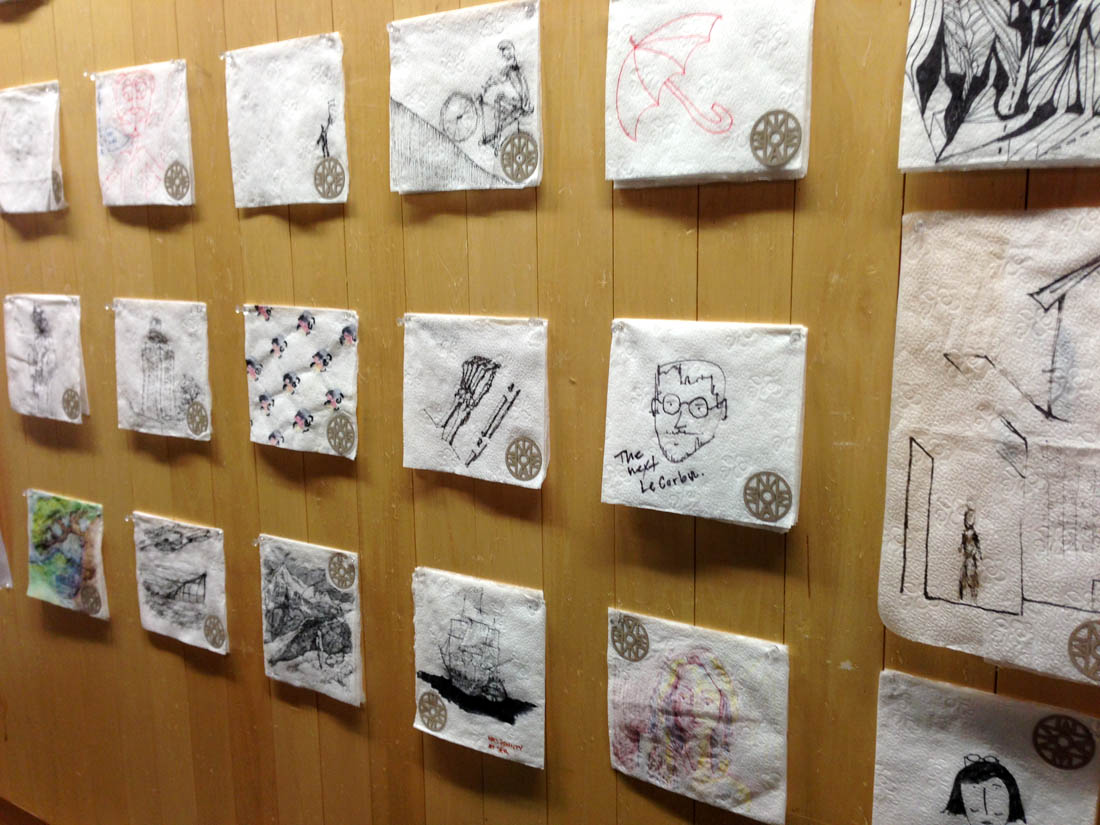


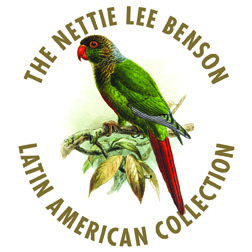 The Benson Latin American Collection
The Benson Latin American Collection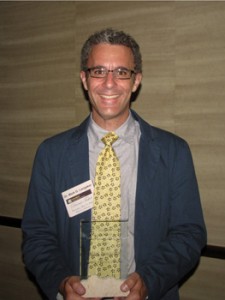
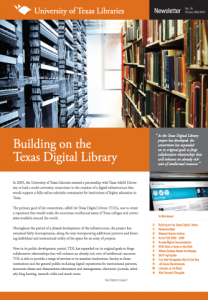 The Fall/Winter edition of the
The Fall/Winter edition of the